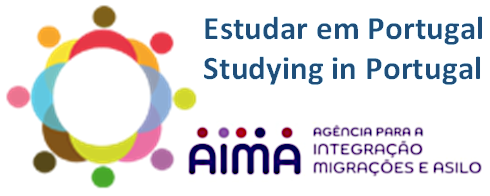
ESTUDANTE INTERNACIONAl
Please click here for information in English
1. Sou Estudante Internacional?
- És estudante internacional, se não tens nacionalidade portuguesa.
Tens informação detalhada do Estatuto de Estudante Internacional na regulação:
- Decreto-Lei n.º 62/2018, de 6 de agosto, e alterado pelo
- Decreto-Lei n.º 25/2025, de 18 de março.
Se és cidadão estrangeiro e tiveste colocação pelo Concurso Nacional de Acesso podes ser considerado estudante internacional, ficando assim impedido de realizar a matrícula. A verificação destas situações compete às Instituições de Ensino Superior e não à DGES.
As exceções são as referidas nos pontos seguintes.
- Não és estudante internacional se:
- tens nacionalidade de um Estado membro da UE ou do Espaço Económico Europeu (UE/EEE);
- tens familiares diretos portugueses ou de nacionais da UE/EEE;
- apesar de não teres nacionalidade da UE/EEE, resides legalmente em Portugal há mais de dois anos (contagem em 1 de janeiro do ano de candidatura) – a autorização de residência para estudos não conta;
- em 1 de janeiro do ano de candidatura, tiveres estatuto de igualdade de direitos e deveres;
- ingressaste pelos Regimes Especiais da DGES através dos contingentes D e G, ou seja, bolseiros nacionais de países africanos de língua oficial portuguesa e nacionais de Timor-Leste.
- és estudante de mobilidade (intercâmbio) – o que procuras está na página do Gabinete de Relações Externas.
2. Como e quando me candidato?
Se és Estudante Internacional:
- concorre através do Concurso Especial de Acesso e Ingresso para Estudantes Internacionais,
- segue os prazos e condições do Edital do Concurso, e
- garante que cumpres os requisitos definidos no Regulamento.
3. Até quando mantenho o estatuto?
Manténs até ao fim do ciclo de estudos em que te inscreveste inicialmente (ou para o qual transitares), mesmo que durante o curso passes a ter estatuto de igualdade de direitos e deveres.
Exceção: se adquirires nacionalidade de um Estadomembro da UE/EEE, deixas de ser Estudante Internacional. Depois de adquirires a nacionalidade portuguesa ou da UE deves submeter requerimento ao P.PORTO até 1 de setembro, para ajuste da propina no ano letivo seguinte (antes da renovação) para que sejas dispensado da aplicação do estatuto de estudante internacional.
4. Familiares diretos: que relações permitem usar o vínculo?
Para efeitos de candidatura ao abrigo do estatuto de estudante internacional, tens que ter:
- um cônjuge ou parceiro em união de facto que seja cidadão da UE/EEE;
- um cidadão da EU/EEE que seja teu descendente direto (< 21 anos ou a cargo) ou descendente direto do teu cônjuge/parceiro.
- um ascendente direto a cargo do cidadão da UE/EEE ou do seu cônjuge/parceiro.
5. Precisas de ajuda?
Candidatares-te ao ensino superior pode parecer desafiante, mas não estás sozinho.
Se tiveres dúvidas ou precisares de apoio, contacta os Serviços Académicos do ISEP – atendimento por email e telefone.
Também deves verificar o Edital do Concurso.
E lembra-te: quanto mais cedo começares a preparar a tua candidatura, mais confiante vais estar.
Boa sorte - o ISEP está à tua espera!
INTERNACIONAl STUDENT
1. Am I an International Student?
- You are an international student if you do not have Portuguese nationality.
You can find detailed information about the International Student status in the regulation:
- Decree-Law no. 62/2018, of August 6, as amended by
- Decree-Law no. 25/2025, of March 18.
If you are a foreign citizen and were placed through the National Access Contest, you may be considered an international student and therefore not allowed to enrol. It is up to the Higher Education Institutions – not the DGES – to verify such situations.
The exceptions are listed in the following points.
- You are not an international student, if:
- you are national of a European Union (EU) or European Economic Area (EEA) member state;
- you are a direct family member of a Portuguese or EU/EEA national;
- even if you are not an EU/EEA national, you have been legally residing in Portugal for more than two years (as of January 1 of the application year) – study residence permits do not count;
- on January 1 of the application year, you have been granted equal rights and duties status;
- you were admitted through the DGES Special Schemes under contingents D and G, that is, as a scholarship holder from Portuguese-speaking African countries or as a national of Timor-Leste;
- you are an exchange (mobility) student – in that case, please visit the page of the International Relations Office.
2. How and when do I apply?
If you are an International Student:
- you must apply through the Special Access and Admission Competition for International Students,
- follow the deadlines and conditions set out in the Call for Applications, and
- make sure you meet the requirements defined in the Regulation.
3. How long do I keep the status?
You keep the International Student status until the end of the study cycle in which you first enrolled (or to which you transferred), even if, during your studies, you are granted equal rights and duties status.
Exception: if you acquire the nationality of an EU/EEA member state, you will no longer be considered an International Student. After acquiring Portuguese or EU nationality, you must submit a request to P.PORTO by September 1 to adjust your tuition fee for the following academic year (before renewing your enrolment), so that you are no longer considered an international student.
4. Direct family members: which relationships count?
To apply outside the International Student status (by claiming a family connection), you must have one of the following relationships:
- a spouse or a partner in a de facto union who is a citizen of an EU/EEA country;
- an EU/EEA citizen who is your direct descendant (under 21 years old or dependent), or the direct descendant of your spouse/partner;
- a direct ascendant who is dependent on the EU/EEA citizen or on their spouse/partner.
5. Need help?
Applying to higher education can feel challenging, but you're not alone.
If you have questions or need support, contact ISEP’s Academic Services – they will help you by email and phone.
You should also check the Call for Applications carefully.
And remember: the earlier you start preparing your application, the more confident you’ll feel.
Good luck – ISEP is waiting for you!
Atualizado em 12/02/2026





































